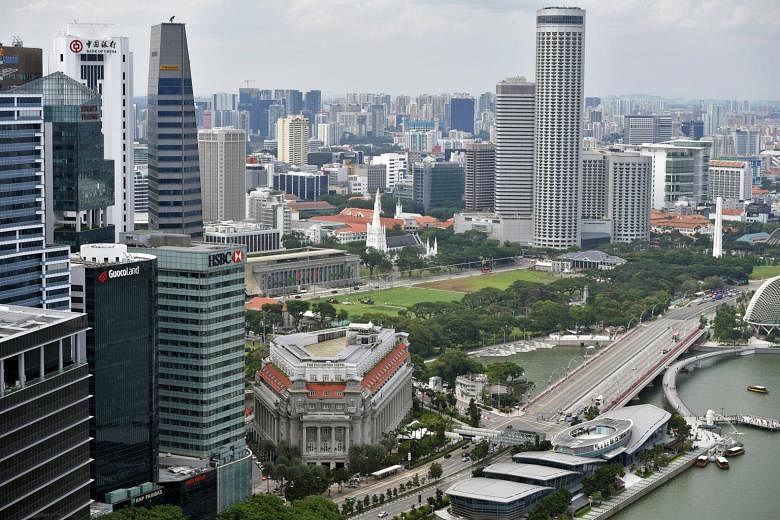TOKYO - Singapore has done well in two separate studies released on Thursday (Oct 12), ranking fifth out of 44 cities in the annual Global Power City Index and second out of 60 cities in the Safe Cities Index.
In the Global Power City Index, by the Tokyo-based Mori Memorial Foundation, Singapore keeps its rank for the ninth year running, after London, New York, Tokyo and Paris.
The report, in its 10th year, has been referenced by Japanese political leaders, including Prime Minister Shinzo Abe and Tokyo Governor Yuriko Koike.
Five cities in the Asia Pacific cracked the top 10. Besides Tokyo and Singapore, they were Seoul (sixth), Hong Kong (ninth) and Sydney (10th).
Dr Hiroo Ichikawa, executive director of the Mori Memorial Foundation, said: "Singapore is a model for other emerging Asian cities."
The index ranks major cities of the world by their "magnetism" across six categories - economy, research and development, cultural interaction, liveability, environment and accessibility.
They are then scored across 70 different indicators, including employment and wage data, the attractiveness of dining and shopping options, cost of living and even taxi fares.
Dr Ichikawa, who is also dean of the Professional Graduate School of Governance at Meiji University, added that Asian cities "need to improve their 'soft' attractions to become truly magnetic".
Singapore ranked first in having the lowest political, economic and business risk, best academic performance in math and science, and with the most international conferences. It was also No. 1 in Asia in terms of employee satisfaction.
But it ranked 28th out of 44 cities in the liveability scale, and The Straits Times understands that its scores were affected by the relatively high costs of living.
It also did not perform too well in the "degree of social freedom, fairness and equality" indicator, in which its high scores for religious diversity were pulled down by low scores for press freedoms and gender equality.
Professor Heng Chye Kiang of the National University of Singapore's department of architecture was a peer reviewer for the report.
Urban city expert Saskia Sassen of Columbia University told The Straits Times that Singapore has despite its size performed "extraordinarily well" with its cultivation of specialised knowledge in areas such as water treatment and port management.
The Safe Cities Index, by The Economist Intelligence Unit and sponsored by NEC, ranks cities using 49 indicators covering digital, health, infrastructure, and personal security.
Singapore retained its No. 2 position from the first study in 2015, and continued to be sandwiched between Tokyo and Osaka.
The city-state came in tops in personal security, with its low crime rates in part due to the PolCam network of tens of thousands of police cameras throughout the island, the report said.
It quoted Ms Jacqueline Poh, chief executive of the Government Technology Agency (GovTech), as saying: "The result is that there is a certain high level of public acceptance and, in fact, enthusiasm for the police camera network."


